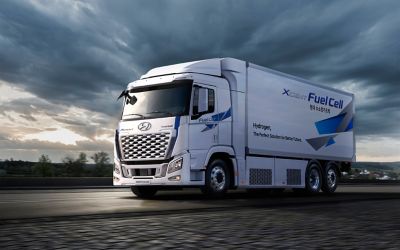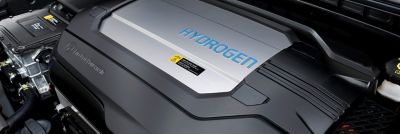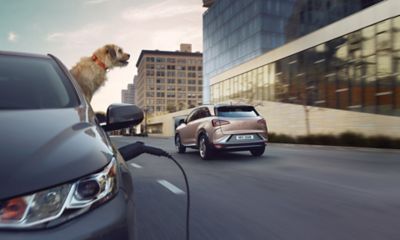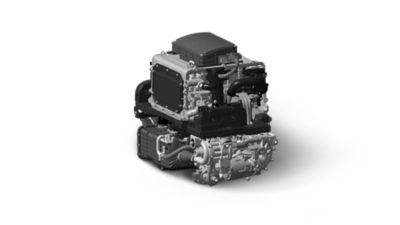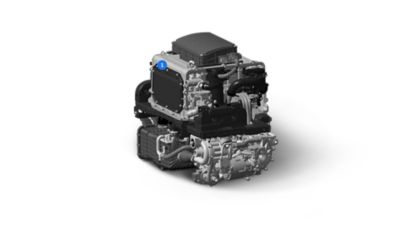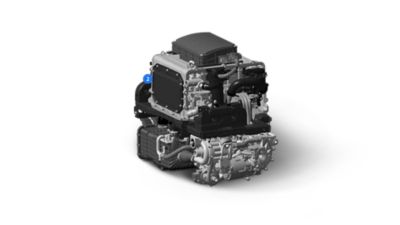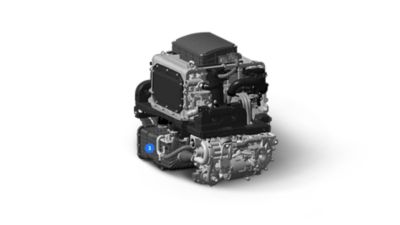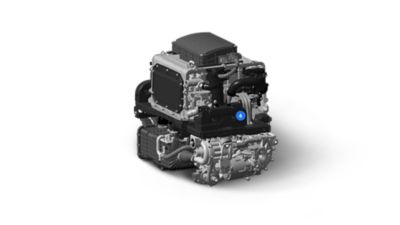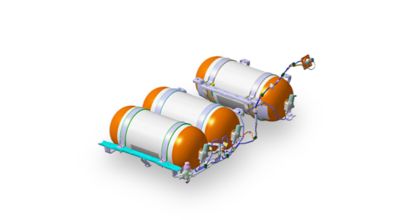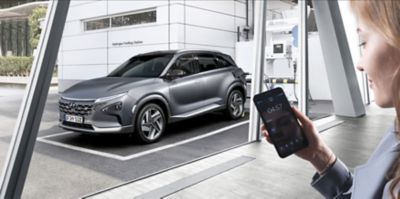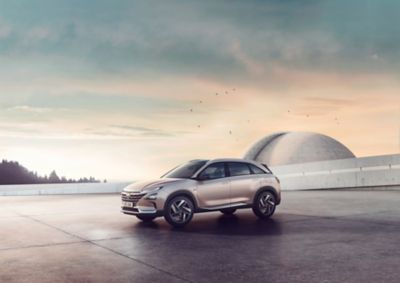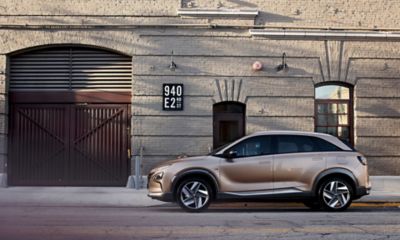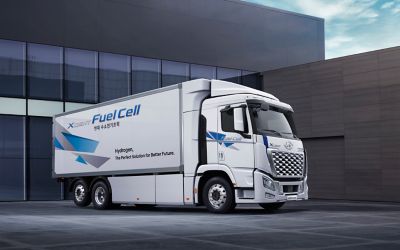Mature and futuristic.
Fuel cell cars are technically electric vehicles that create their own electricity from oxygen and hydrogen. Hyundai was first in mass-producing fuel-cell vehicles and continues to be a leader in sustainable motoring technology.
How it works.
When hydrogen stored in the tanks enters the fuel cell stack, it is broken down into protons and electrons. The flow of electrons created in the fuel cell provides electricity that drives the electric motor, and the protons react with oxygen molecules from the air, generating heat and water – the only emission.
Fuelling is quick, safe, and convenient.
Fuelling is as simple as fuelling a traditional petrol-powered car and can be done in 3 to 5 minutes. More and more fuelling stations are coming online each year and Hyundai supports a pan-European initiative to grow this network.
Building a hydrogen society.
Hydrogen is an infinite substance that makes up more than 90% of the molecules in the universe. The McKinsey report ‘Hydrogen meets digital’ predicted that around 2050, about 18% of the energy used in the world will be hydrogen. This includes FCEVs on the road, as well as the energy required for power generation, cooling and heating buildings, as well as operating industrial facilities.
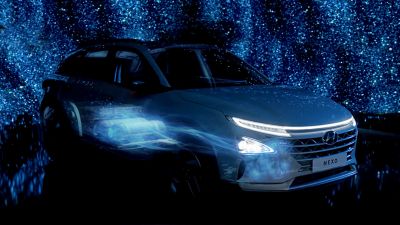
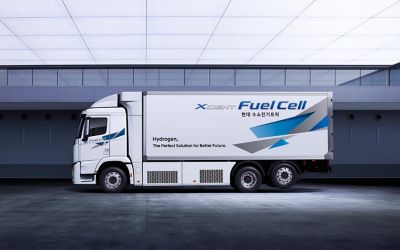
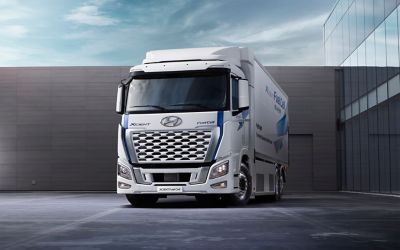
Xcient
Committed to hydrogen in all modes of transportation.
Hyundai plans to expand its XCIENT Fuel Cell heavy-duty commercial trucks sales in Europe, the U.S. and China as demand for clean transport solutions grows. To support a growing hydrogen ecosystem, Hyundai built a business case for more than 100 hydrogen fuelling stations in Switzerland, which would be enough to support not only commercial fuel cell electric vehicles but personal ones, as well.
Coming together for an emission-free future.
Hyundai Motor Company and H2Energy, together with the ‘H2 Mobility Association’, have set the course for a sustainable fleet of heavy fuel cell trucks in Switzerland. This ecosystem will only be possible through the cooperation of hydrogen producers, filling station operators, logistic companies and Hyundai.
